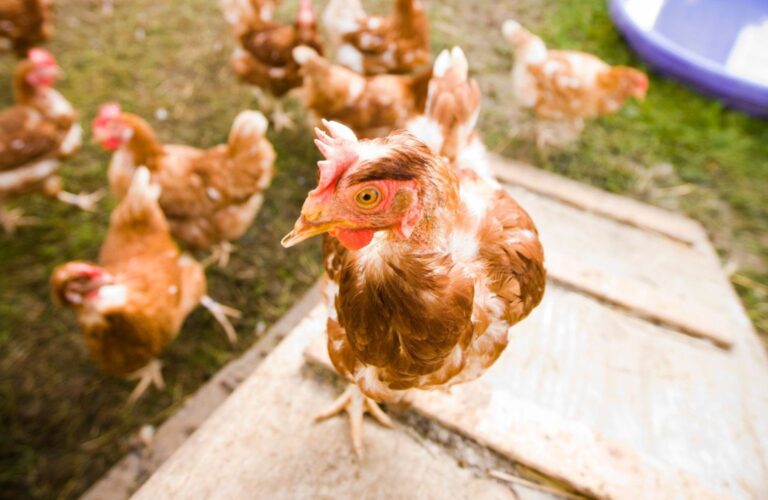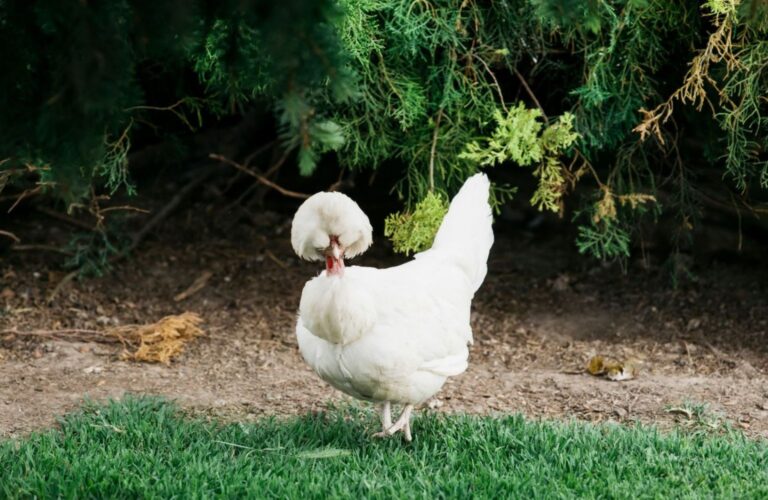Are you looking to start your very first flock of feathery fowl? Maybe starting with just a few hens?
How EXCITING!!!!
Not only do chickens offer you fresh and free eggs, but these clucky ladies make for excellent pets and provide a great way to teach responsibility and ownership to your children or grandchildren.
If you are wondering what the best chicken breeds for beginners are, the following 7 chicken breeds offer you great starters!
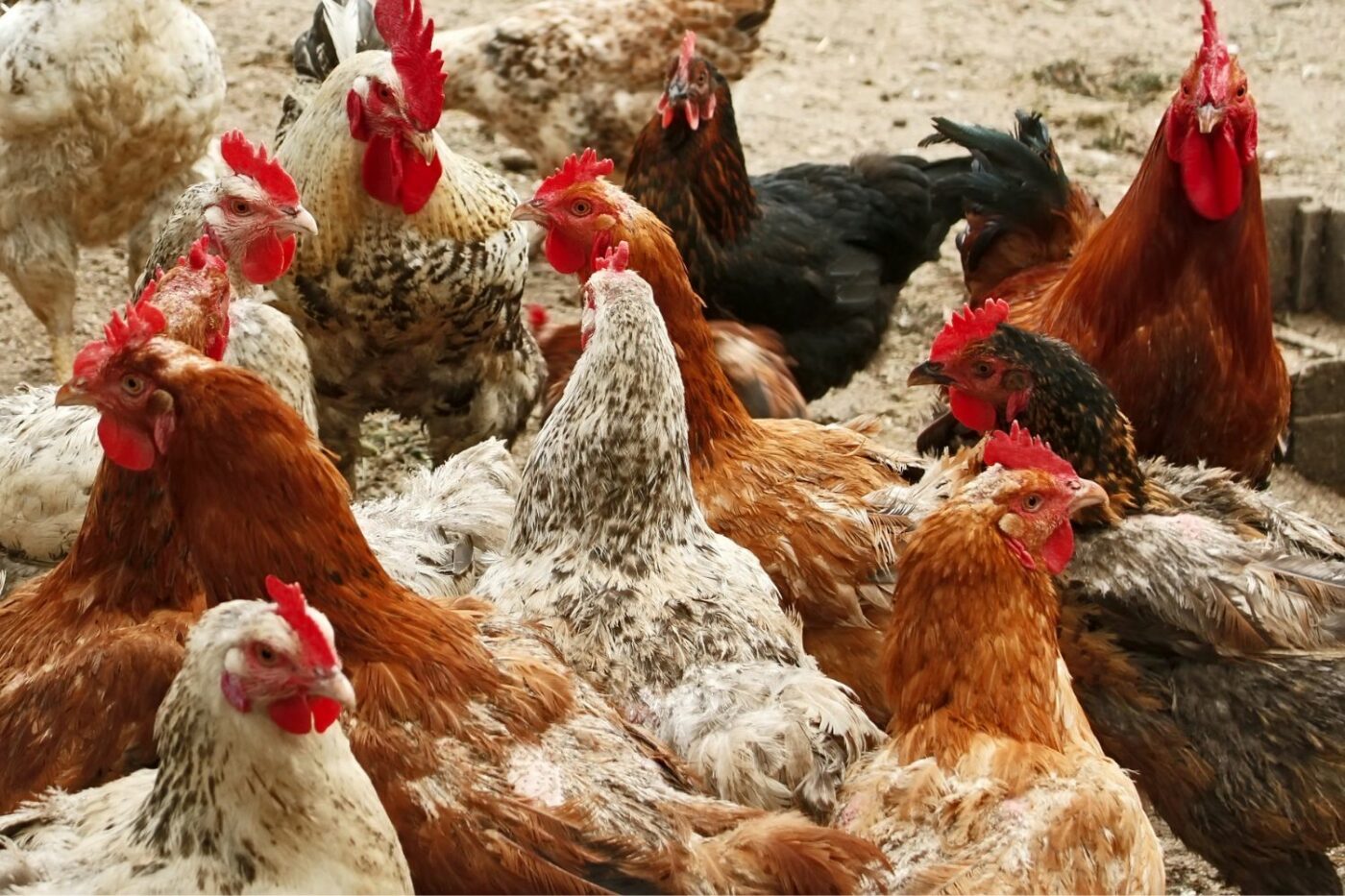
With so many different chicken breeds out there, here are some personally recommended suggestions tested by the reviews of chicken owners and customer feedback from all over the web.
Owning chickens is a smart move that not only pays itself off with free eggs but also adds beauty, meaning, and companionship to brighten and enhance your life.
So, without further ado…introducing the 7 Best chicken breeds for the aspiring chicken farmer [broken down by personality type, egg productivity, and outstanding traits and care tips!]
Plus, enjoy hearing feedback on popular questions surrounding raising backyard chickens afterward.
If you want to hear from our customers on how their backyard chicken-raising experience is going, check out our customer stories!
1. Rhode Island Red
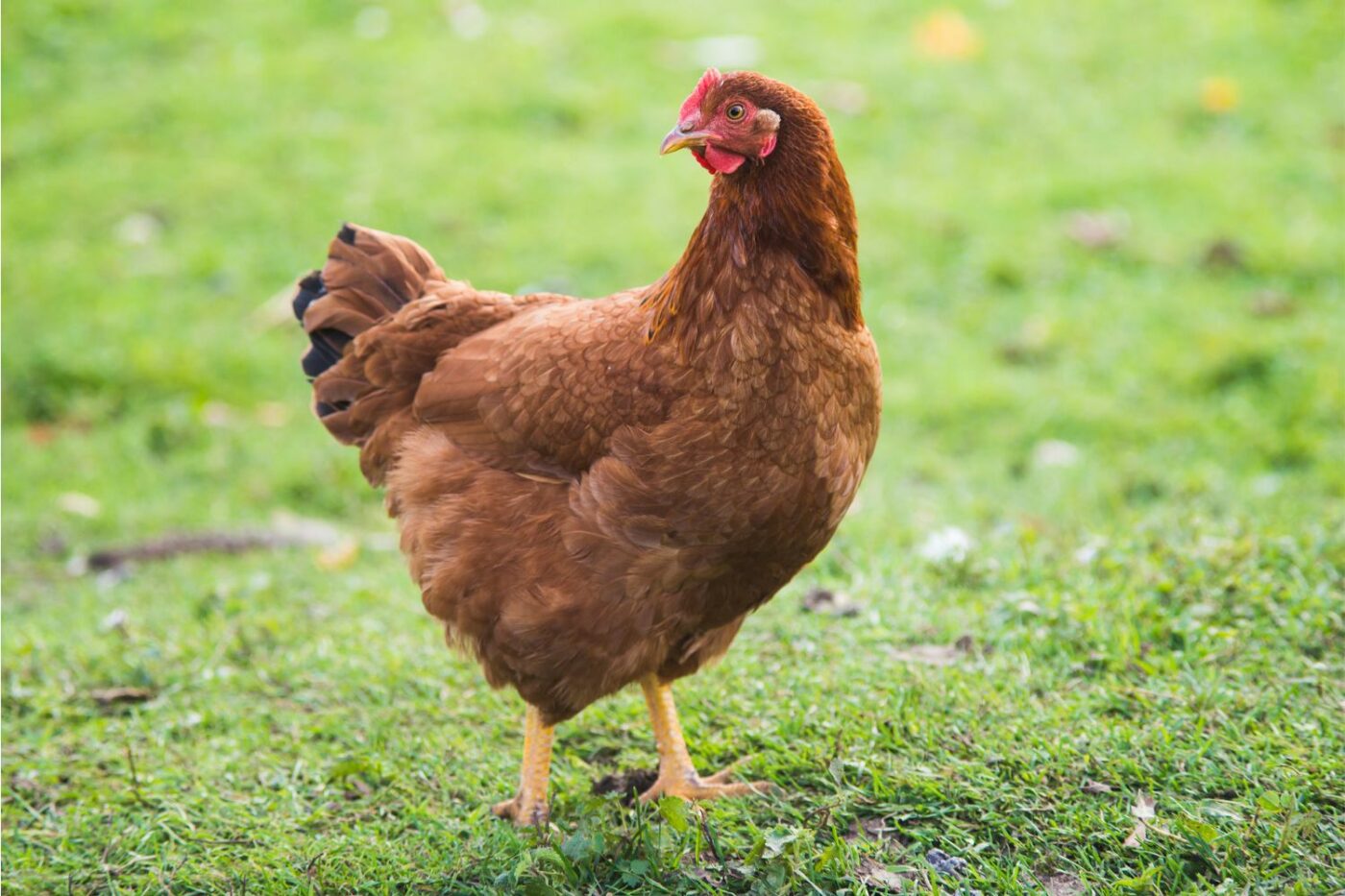
Personality Type: Docile, friendly, laid back, and a bit jealous (around other breeds)
Egg Productivity: Average 268 eggs a year!
Outstanding Traits & Care Tips:
- These lovely red ladies are dual-purpose. This means if you wish to use them for meat, you have that option. Plus, they lay a lot of delicious eggs.
- Not too noisy. This is great if you have a lot of neighbors around.
- Very good mothers. These hens can be broody, although they are not as broody as some breeds. They will set eggs aside to raise into little chicks if there is a rooster around.
- Extremely Weather Hardy. Rhode Island hens handle very cold or hot climates like nobody’s business. This hen is the perfect option if you live in the cold north or the hot south.
- Very self-sufficient. These ladies love to forage and do well searching for food on their own.
- Roosters are aggressive. The male Rhode Island can be a bit mean, so it is best to avoid this kind if you want a rooster, and you are looking for the most child-friendly breed.
- Child-friendly. Rhode Island reds are generally known for making friendly and affectionate pets. So, if you just want the hens, then you got yourself a very child-friendly breed.
- A bit jealous. These hens do the best in a flock of their own. They can tend to bully other shyer breeds. On the flip side, they too can be bullied by other stronger personality breeds.
2. Barred Plymouth Rock
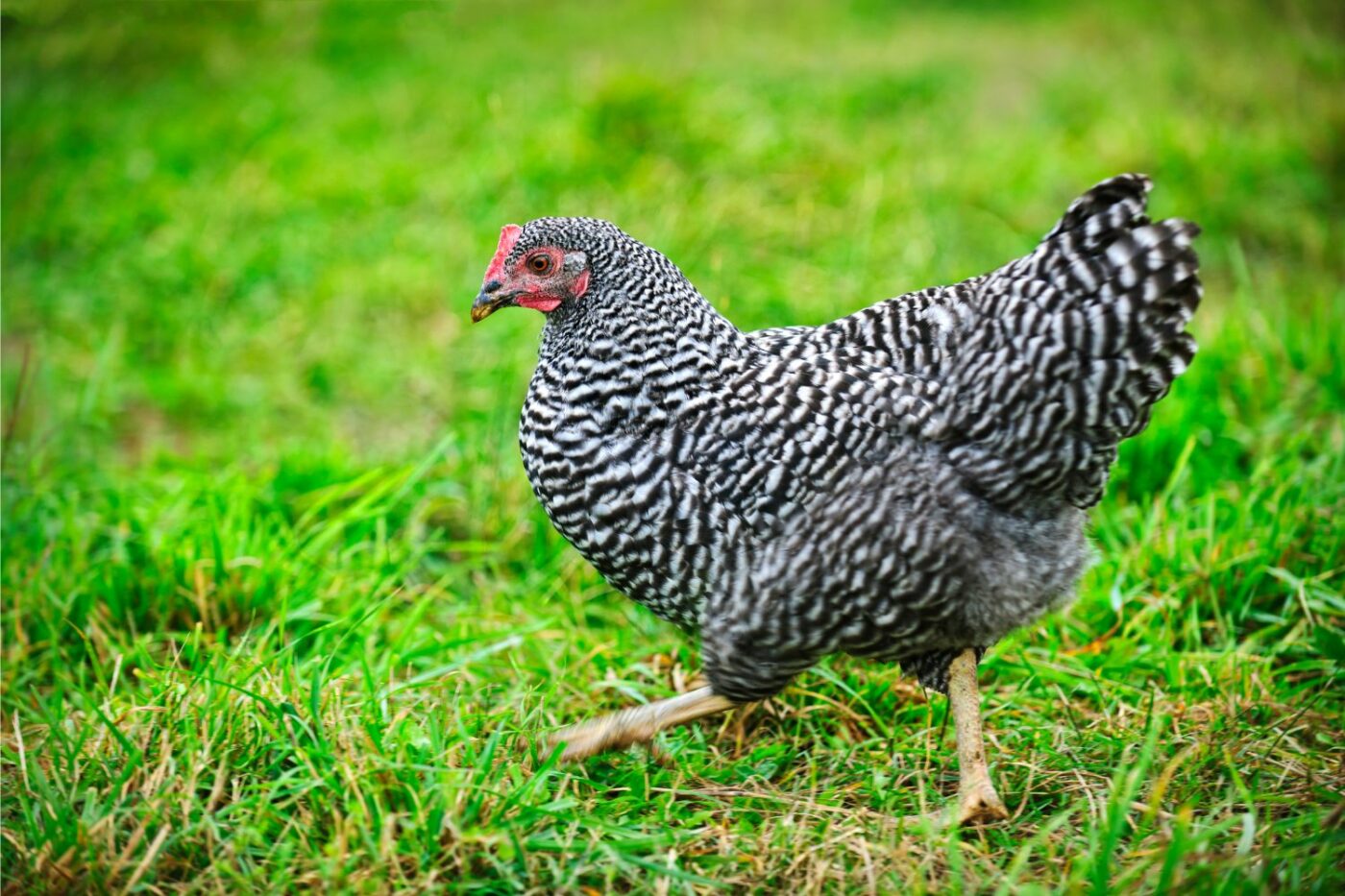
Personality Type: Easygoing, sweet, quiet, dominant at times (with weaker chicken breeds)
Egg Productivity: Average of 250-300 brown eggs annually
Outstanding Traits & Care Tips:
- Lovely brown egg layers. If you love those charming brown shells, the Barred Rocks will not disappoint.
- Sport a very pretty feather pattern. These hens’ style is a breathtaking display of black and white marbled feathers. Stunning little ladies.
- Good layers. Enjoy the steady production of brown eggs all year round.
- Dominate personality at times. Although it seems to vary from hen to hen, it is reported that Barred rock hens will hold their own in a mixed flock, especially against more aggressive breeds.
- Dual-purposed. These hens offer you both eggs and meat if desired.
- Good pets! Barred Plymouth Rocks like to be held and are relatively chill. They make good pets for both young and old.
- Friendly Roosters. If you wish for a rooster and hens that can be around your children, the Barred Plymouth Rocks rooster can be a sweetheart as well.
3. Partridge Silkie
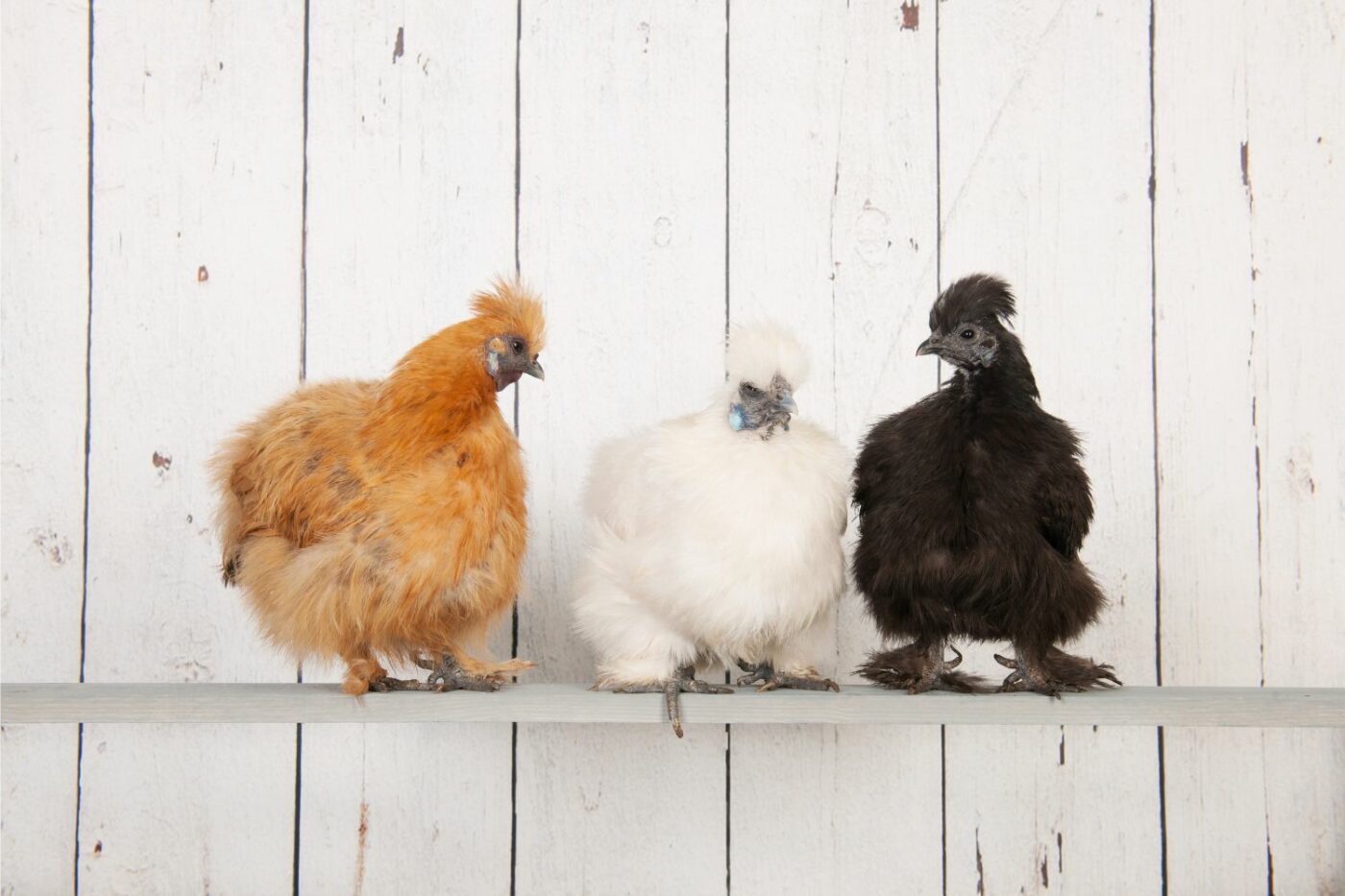
Personality Type: Very calm, friendly, tame, susceptible (tend to be bullied by most breeds)
Egg Productivity: 100 – 120 cream-colored small eggs yearly
Outstanding Traits & Care Tips:
- Seriously stinking cute! These balls of fluff will keep you amused and enchanted!
- Super soft feather. Yes, the enjoyment of holding these real-life feather balls is high.
- Tend to be sensitive to the cold. Keep an eye out for them.
- Genders are difficult to tell apart. Both the boys and the gals look the same as chicks. They do not know how to tell them apart. So, if you want more than one, the seller will likely give you a 50/50 batch.
- “High maintenance”. These fluffy chickens need extra grooming and coop cleanings to keep their extra fluffy feet healthy. Moisture or poop that sticks to their feet, especially in the winter, can put them at risk for frostbite and other foot diseases. Plus, Silkies need a dry coop 24/7 because their fluffy down feathers do not hold moisture well at all.
- Exceptionally good mothers. These irresistibly fluffy ladies make excellent mothers. Their mothering skills extend to other chicken breeds and even other animal species, such as cats or dogs.
- Cannot fly. Perfect for staying in your backyard fence or within their coop.
- Predisposed to predators. Silkies cannot see the best or fly, so they are more vulnerable to flying predators or ones that stalk the earth.
- Take longer to mature than other breeds. Silkies tend to lay their first eggs around 7-9 months of life.
- Remarkable pets & affectionate lap companions. These silky ladies make much better pets than egg layers. So, if you do not mind the extra care, and you wish for primarily a pet, the silkies fit the bill perfectly.
4. Black Autralorp
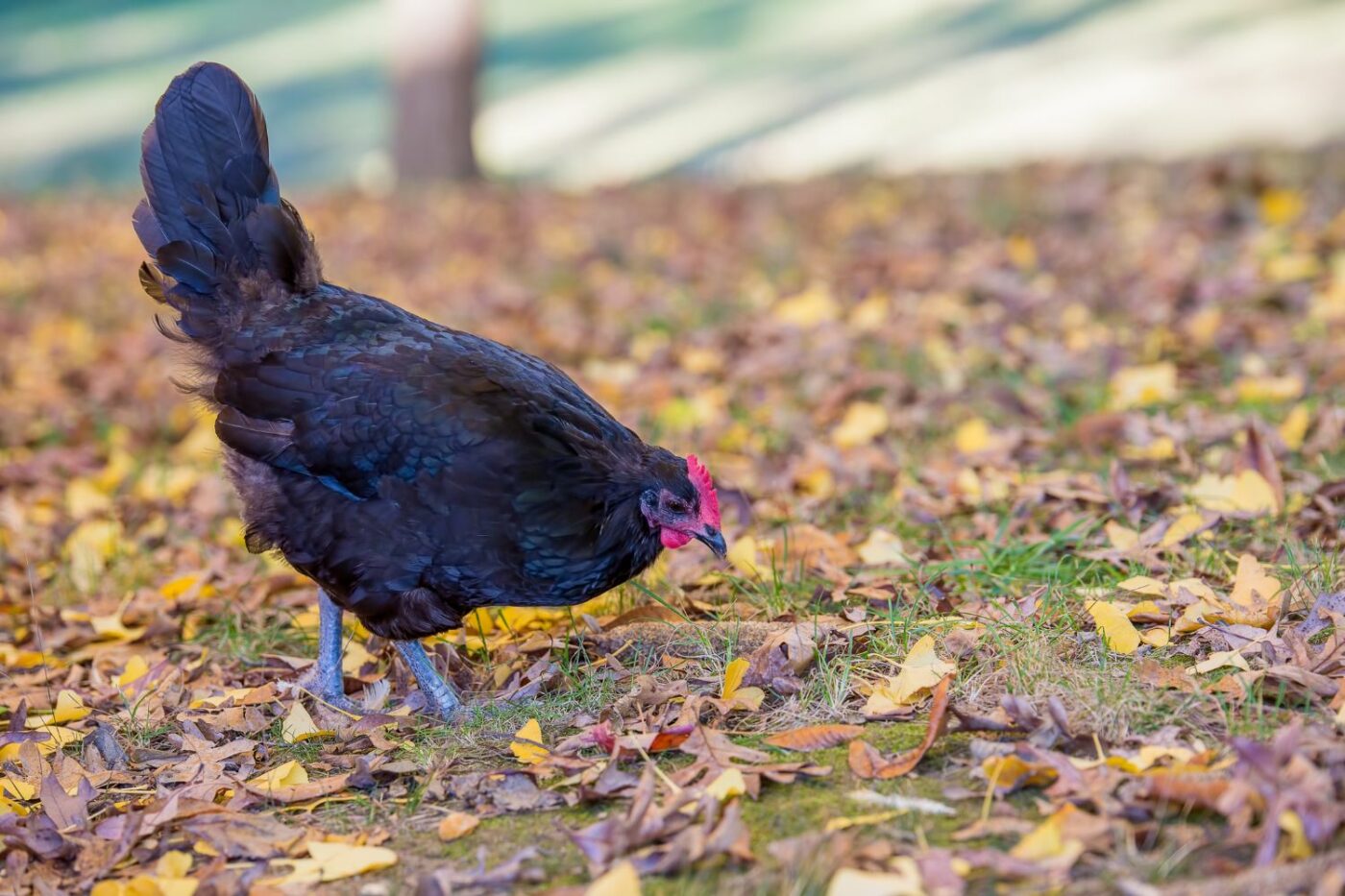
Personality Type: Very friendly, peaceful, quiet, sweet, laidback (can be bullied by stronger breeds due to its chill personality)
Egg Productivity: About 250 large light brown eggs annually
Outstanding Traits & Care Tips:
- Low maintenance. They do not require any special care or attention for them to live happy and healthy lives.
- Love foraging and roaming free. Black Australorps are very active. This larger-sized breed must have space to run and exercise. They do well free-ranging.
- Weather hardy!!! These classy chickens do well in both extremely cold and hot weather conditions.
- Very Quiet Hens. This breed is one of the quietest, which is great news if you have a small yard and share close space with neighbors.
- Loud Roosters. While their lovely ladies are generally quiet, these shimmering black beauties make themselves known without shame. Yes, they can be rather loud. So, if you live in a populated area or have close neighbors, you might want to avoid buying a rooster.
- Not very broody but can make good mothers. An ideal choice if you do not wish to expand your flock and prefer not to deal with a hen’s broodiness.
- Early Egg Layers. These classy hens can start producing eggs as early as 5 months old.
- Fun to have around! Black Australorps, while they may be active, make good pets thanks to their friendly, quiet, and laid-back personalities. It is not uncommon for them to be coined the beloved of a diverse flock. If you buy one, you have found yourself a true feathery friend. They are an excellent choice for a child-friendly breed.
These chickens are considered exotic with their beautiful glossy black feathers. If you are interested in more exotic chicken breeds like the Australorp for your backyard, take a look at our blog.
5. Buff Orpington
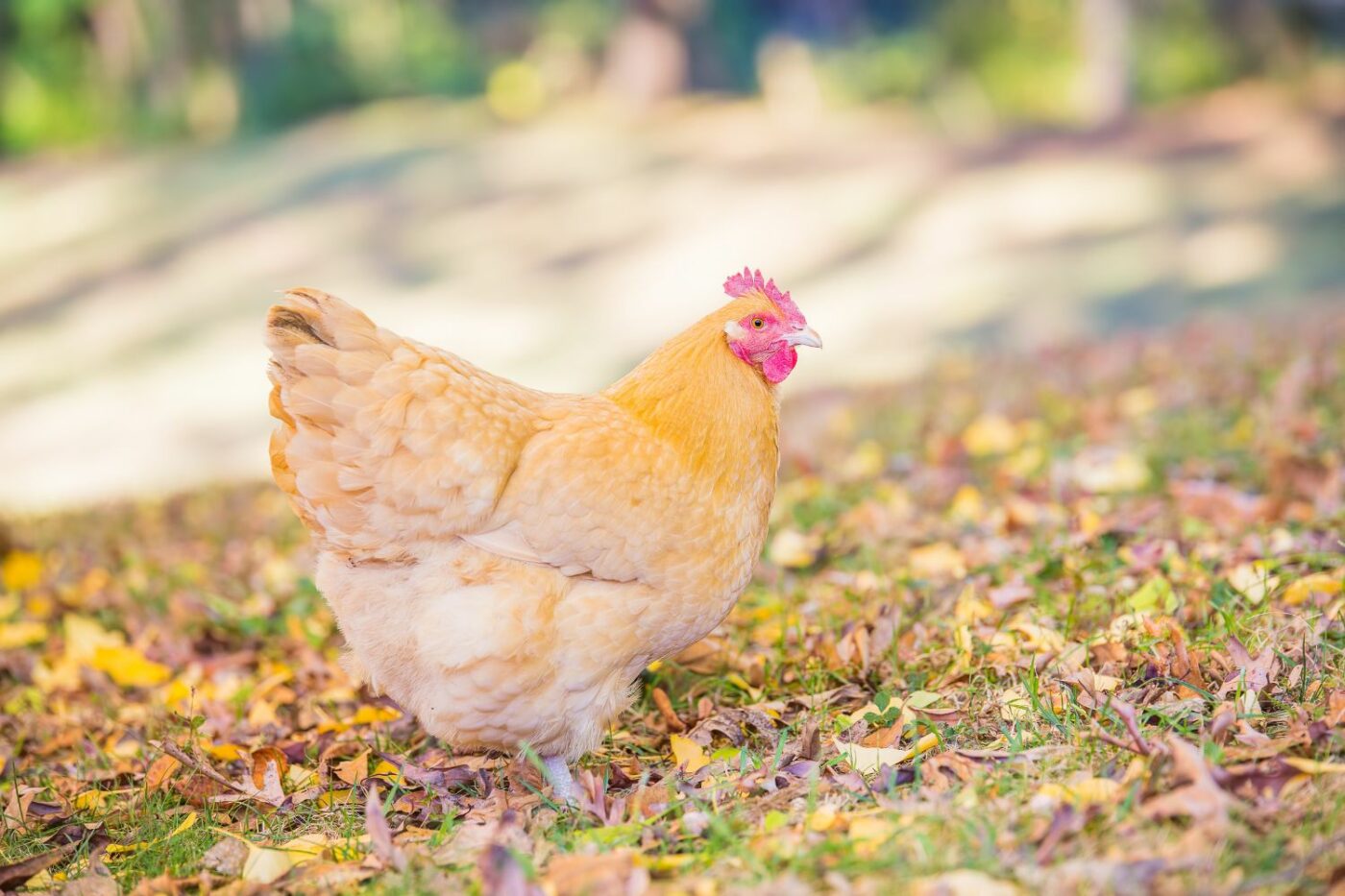
Personality Type: Friendly, happy, easily tamed, quiet, cuddly, pleasant
Egg Productivity: range from 200 to 280 large light brown eggs annually
Outstanding Traits & Care Tips:
- Very quiet. Perfect chickens for small backyards in a town or even smaller-sized cities (if they allow it) since they are one of the quietest chicken breeds.
- Cold hardy but not extreme heat hardy. They can survive in hot climates such as Florida, but they will need plenty of water and available shade to remain healthy.
- Very broody and good mothers: These ladies are very interested in raising little chicks. If you wish for baby chicks, this is an ideal breed for you.
- Dual purpose: Provide both eggs and meat
- Not super flighty: These lovely golden chickens enjoy keeping closer to the ground level when they roost. This may have to do with the fact that they are a broody breed.
- Extremely Family friendly: This breed of chicken is as darling as they are sweet and friendly. If you have children or personally wish for one of the nicest chicken breeds, the Buff Orpingtons are where it is!
6. Leghorn
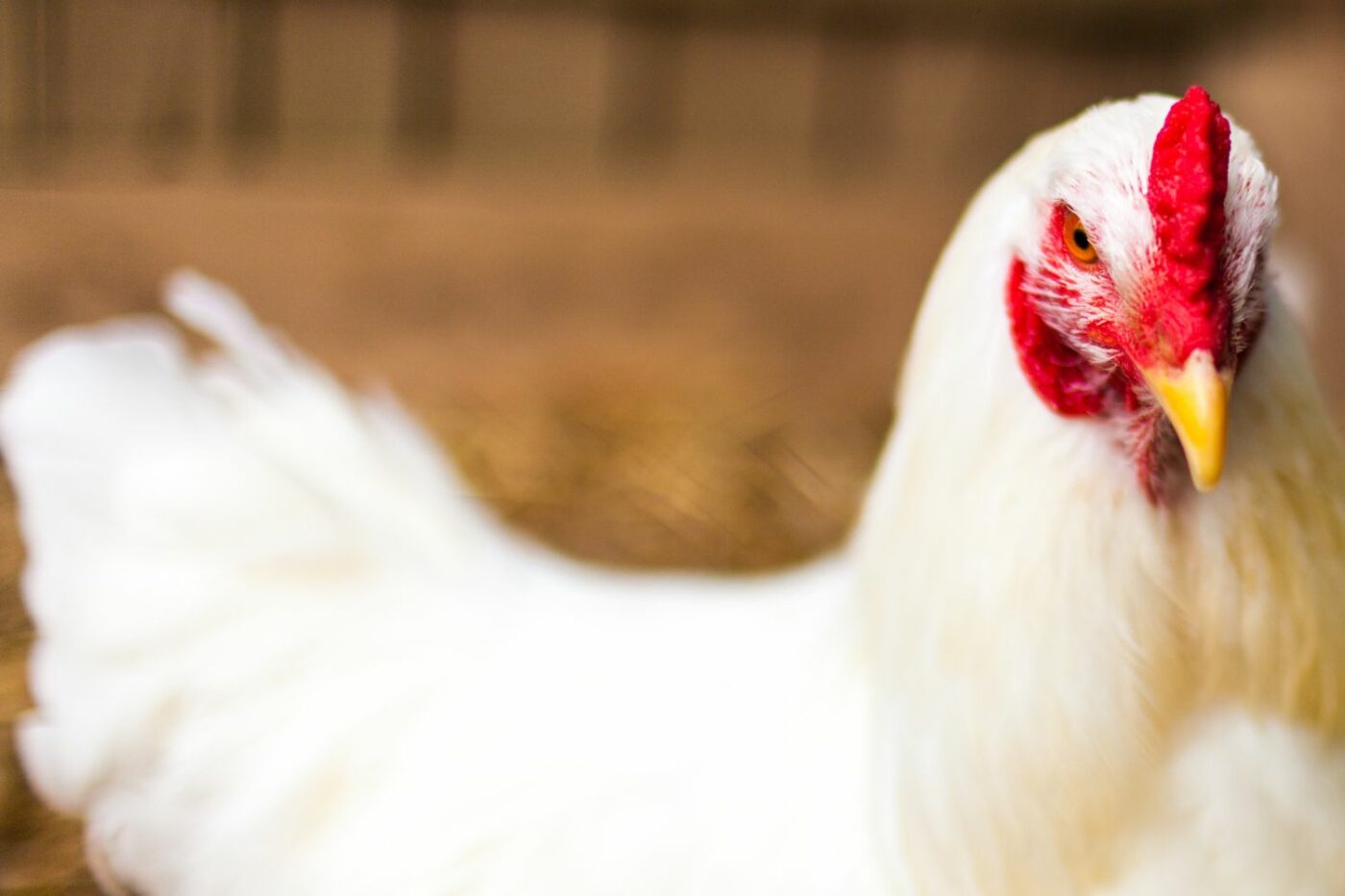
Personality Type: Friendly, nervous, expressive, go-getter, independent
Egg Productivity: 280 – 300 big white eggs annually
Outstanding Traits and Care Tips:
- Excellent egg layers. The Leghorn’s go-getter personality fits its prolific egg production. If you want a reliable egg-laying chicken, the Leghorn breed will not disappoint!
- Noisy. These ladies are rather clucky. So, if you are surrounded by close neighbors, this breed is not the best option.
- Friendly but generally not cuddly. Independence seems to run through the legs of these chickens. While a minority could end up being cuddly (especially if you handle them a lot as chicks), generally do not expect them to cuddle with you. While they are generally friendly with children, it is best to choose another breed if that is a top priority for you.
- Seldom go broody. Where they seem to lack in producing chicks, they certainly make up for them with their eggs!
- Nonaggressive with other breeds. This is great news, especially if you are hoping to start off with more than one breed.
- Flighty. These ladies tend to be nervous.
7. New Hampshire
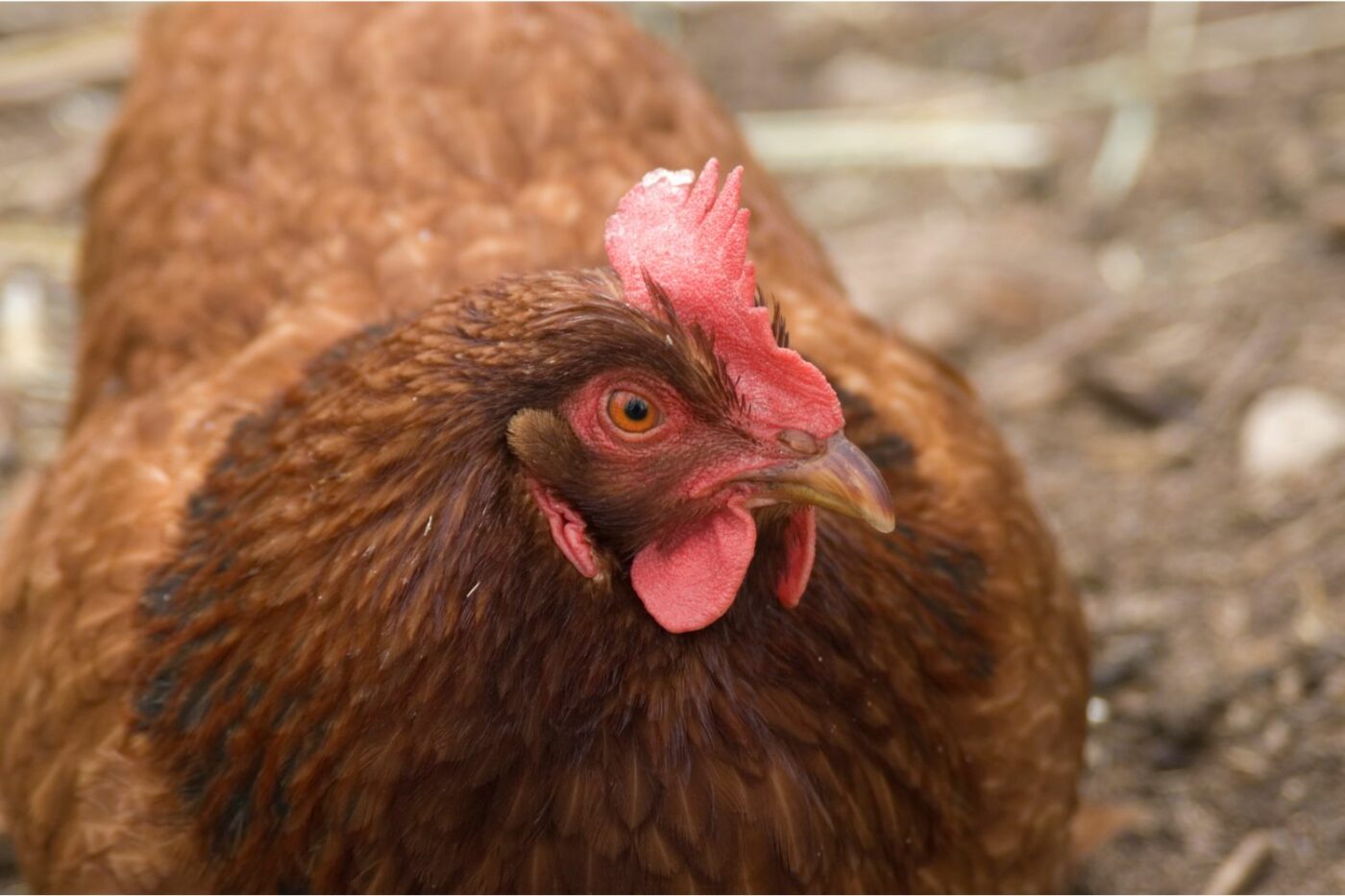
Personality Type: Friendly, aggressive (at times), expressive, curious,
Egg Productivity: About 200 large light brown eggs a year
Outstanding Traits and Care Tips:
- Not flighty. Enjoy chickens that do not jump or fly with every loud noise or sudden moment.
- Robust & healthy. This is a hardy breed of chicken and has a reputation for staying healthy.
- Cold hardy. Winter does not pose a threat to these cold hardy birds.
- Mildly Broody. New Hampshire hens can go broody, but it is not as frequent as some breeds. However, when they do have little chicks, they are wonderful mothers.
- Dual purpose. This breed offers you both eggs and meat if desired.
- Generally friendly. This breed can surprise you with a super-friendly chicken or a more aggressive one. Generally, they are a friendly and tame breed and make great family pets. Again, if one of your main priorities is finding a child-friendly breed, it is better to choose another breed.
- Take mealtime very seriously. These chickens do not mess around at mealtimes and will get aggressive with other chickens to get their “fair share”. Weaker breeds will get run over by these food-crazed ladies.
- Enjoy foraging. New Hampshire chickens enjoy room to run around and do well finding insects and other bugs to supplement their diets.
- Noisy. These lovely ladies love to talk! Yes, this breed is very expressive. So, if you are in tight backyard quarters due to close neighbors, this breed is not recommended.
Tip for Raising Cuddly & Friendly Chickens (No Matter the Breed)
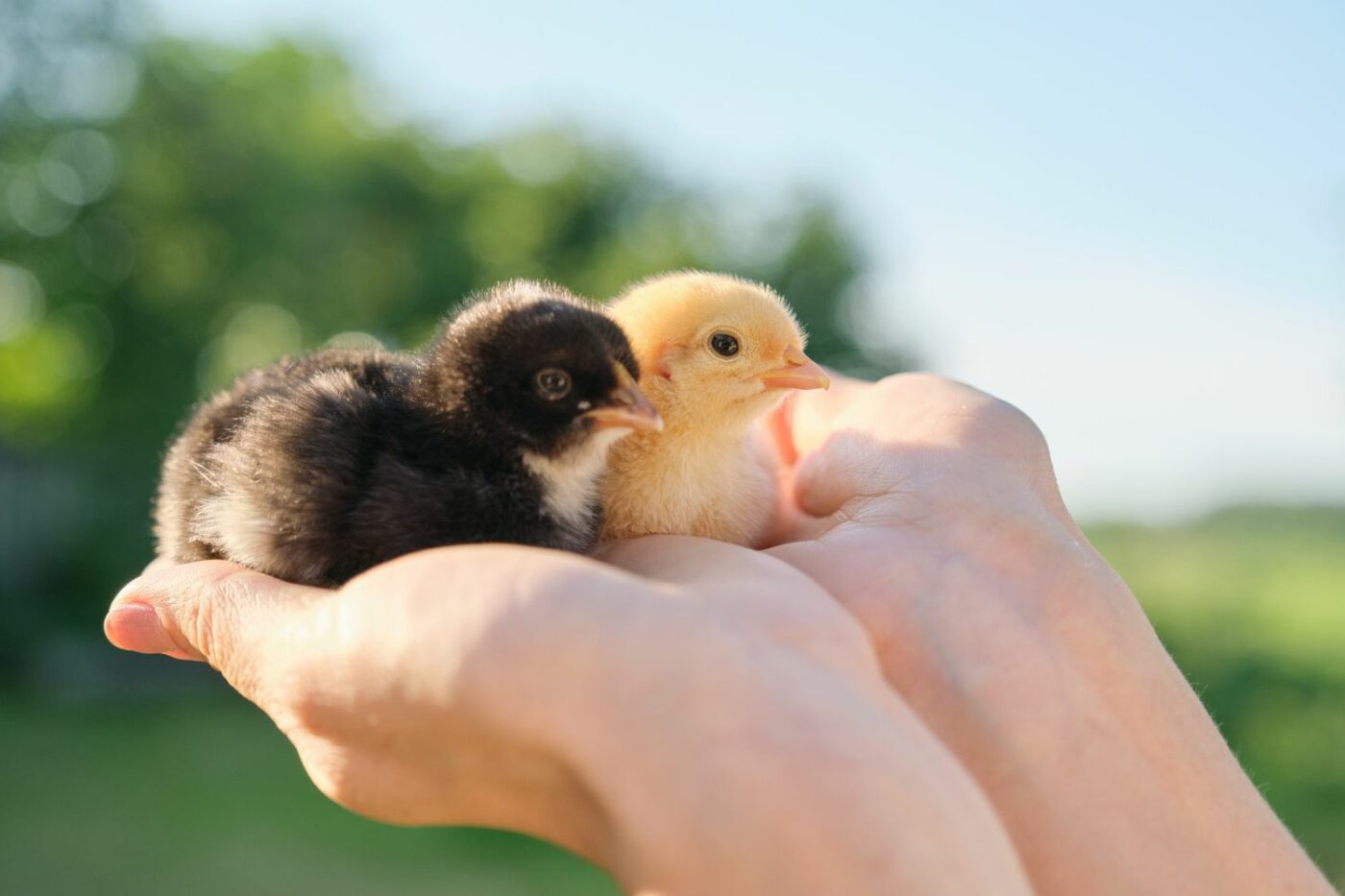
The #1 tip is to handle them a lot as chicks. Hold them and spend time with them. This is especially important if you want to keep your chickens as egg layers and pets.
Popular Chicken Questions & Answers
Q. Which breed of chickens is best for beginners?
Buff Orpingtons and Black Australorp
Q. How many chickens should a beginner have?
No less than 3 and then add 3 for every 2 members of your family. Restrictions may apply depending on your location. Some towns have restrictions on the flock size and the setting for your coop. It is always in your best interest to check your local government regulations before making the purchase.
Q. Is it OK to just have 2 chickens?
It is not recommended to have less than 3 because chickens are social animals who are used to living in flocks, and they thrive on social structures. A good rule of thumb is 3 chickens per 2 household members.
Q. What breed of chicken is the friendliest?
It is difficult to claim a singular friendliest breed since there are different strengths with each friendly breed. The following offer you the friendliest breeds of chickens and their strengths.
- Silkies – good temperament, like hugging, part of the family
- Speckled Sussex – friendly, beautiful, curious, attentive, intelligent, mellow, follows you around
- Buff Orpington – patient and friendly, love hugs and cuddles
- Cochin – “gentle giant”, great mother including foster care at times
- Wyandotte – docile and easily handled
- Australorp – calm, friendly, dignified, graceful,
- Faverolles – gentle and social, sweet, love kisses and cuddling, best for children
- Jersey Giants – get along well with other animals and other pets without being intimidated
Q. How cold is too cold for a chicken?
Cold weather chickens tolerate freezing to slightly below freezing, around 10-32 degrees Fahrenheit.
Q. What are the cold-hardy breeds?
The following do very well in cold winters:
- Chantecler
- Wyandotte
- Jersey Giants
- Rhode Island Red
- New Hampshire
- Buff Orpington
- Black Australorp
Q. What do you do with chickens in the winter?
Here are a few tips with a link to a full article on how to care for your chickens in the winter.
- Do not use a heater or heat lamp – they stay warm by huddling together, especially when they can do this in a coop
- Hang a head of cabbage for a toy which they can peck at
- Make sure they have space to roost at night
- Use the deep litter method to allow the buildup of chicken poop and bedding material to produce heat during the winter months.
- Supplement light if needed as this is important for continued egg production
- Make sure there is good ventilation, but avoid draft wind
- Use water heaters for water
Enjoy digging deeper into ways to care for your chickens during the winter by reading How to Keep Chickens in the Winter.
Q. Should I let my chickens out in the snow?
Chickens do not generally enjoy the snow. However, they should be allowed to go outside even when it is snowy, and this could be more inviting if the straw is spread over the snow for them.
Q. Do chickens need a coop?
No, a coop is not required, but it can be very helpful during the winter months. The main goal with a coop is for your chickens to have a place where they can roost at night, be protected from the elements, and have safety from predators. Additionally, laying boxes provide an organized and safe place for their big job!
Q. Can chickens stay in the coop all day?
This is not a problem if they have all they need for the day including light, food, and water. Ideally, they should not be left alone for >3-4 days max. Also, ensure enough space per chicken with 2-4 sq. ft of floor space per chicken recommended.
Q. What is the best chicken for a pet?
- Silkies – good size and temperament, very cute, looks like a stuffed animal
- Speckled Sussex – will follow you around
- Buff Orpington – “Golden Retriever” of chickens – patient, friendly, like treats, and will endure being held
- Rhode Island Red – “Easiest chickens to keep” – friendly to each other and children
- Cochin – stick close to home and like having boundaries, child-friendly, not top of the pecking order
Q. What is the most beautiful chicken?
The following are some of the most beautiful chicken breeds. However, beauty is always in the eye of the beholder.
- Silkies – look like stuffed animals with silky feathers
- Wyandotte – exudes a classic chicken beauty with a variety of colors
- Phoenix – impressive plumage with tail feathers reaching 12-18 inches
- Plymouth Rock – royal, classic American chicken (one of the most popular and recognized chickens in the nation)
Looking For a Backyard Chicken Coop?
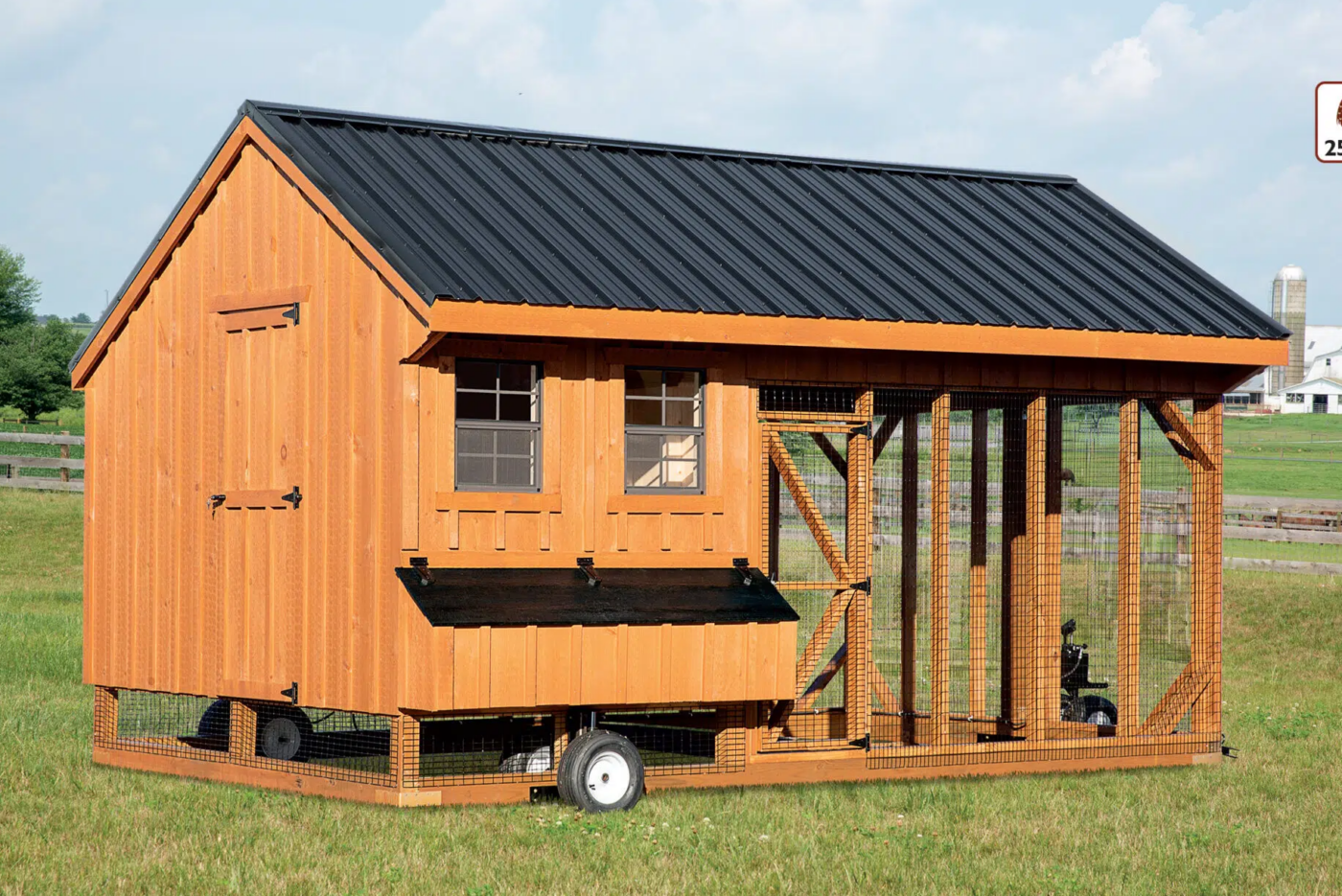
Check out our wooden chicken coops that are simply designed to keep your chickens safe. Whether you love raising backyard chickens or have a chicken-related business, our sales team and network of dealers are always ready to help you create a safe and comfortable environment for your pet. Request a quote or call 888-318-4404.


